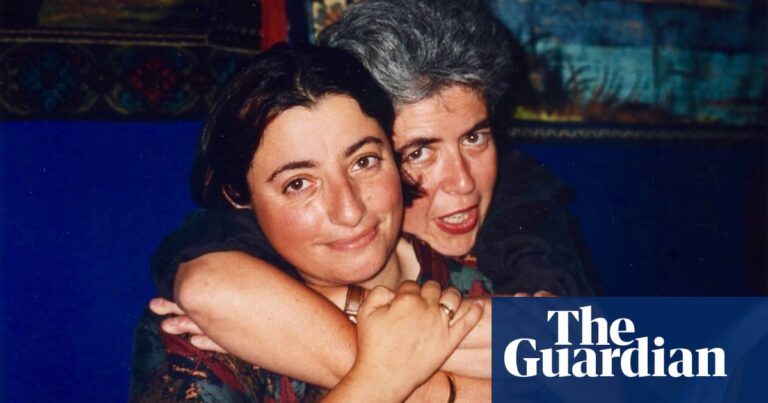I owe my encounter with Barbie to former President George H. Bush and Saddam Hussein. In 1991, there were fierce rallies in Australia and around the world against the US bombing of Iraq.
As an Arab feminist born in South Lebanon and raised in the white suburbs of Sydney’s northwest, I have long been on the side of the underdog.
One day I went to Sydney Town Hall, one of thousands protesting against a pointless war, and behind me stood a group of women holding a banner that read, “Jewish Women for Independence for Palestine.”
“Are you serious?” I asked them, a brazen question that would change my life.
Barbie was with the group that day, but I was much more interested in the flag she was holding. In any case, I was married to a man and had no interest in dating a woman.
At the time, Barbie was trying to start a Sydney version of Women in Black, an anti-occupation Palestine solidarity group that had been founded in Israel in 1987. I quickly became deeply involved. We were a mix of Jews, Arabs and Anglo-Australians who met monthly in public places around the city, dressed in black and praying in silence (but usually with a banner held in front of our faces and speaking behind the sign – our voices could not be silenced).
A year later, I was single and free, but still angry at the state of the world. I had had a few flings with women, but nothing worked out. One night in mid-1993, I went out dancing with a girl I’d been pursuing for a while, but she ignored me. I woke up the next morning frustrated, hungover and exhausted.
Later that day, a dozen members of Women in Black were meeting at my house for lunch and a planning meeting. Suddenly, around 10 a.m., there was a knock on the door. Barbie had just walked two suburbs to my house and was standing there looking energetic and eager. I knew her from Women in Black meetings, but we hadn’t socialized or even become friends. “I thought you might need some help organizing,” she said.
As we prepared dinner together, Barbie noticed my condition and asked if I was OK. Suddenly, I was pouring out my heart out about the woman I was pursuing. Barbie gave me this advice: “Look, if you want to be in a relationship with a woman, you don’t want to be with one who isn’t confident about his sexuality. You’d be better off finding a proper lesbian.”
Later that day, as the group sat on the floor of my living room, I noticed Barbie leaning against the sharp corner of the stereo cabinet. I grabbed a cushion and put it under her back. She held my hand for just a moment to say thank you. In that moment, something inside me shifted. “My God, your hands are so soft!” I exclaimed. And through that small act, Barbie was no longer just a political comrade, but someone with whom I could see a future.
That evening, when everyone started to leave, I secretly wanted her to stay, but her friend insisted on staying behind to drive Barbie home.
A few weeks later, Barbie and I met again at a talk by a Palestinian official. The room was packed, and he was saying things we already knew. I turned to him and whispered, “Let’s get out of here and go eat.”
We went to a nearby Spanish restaurant and sat in a corner behind a brick wall. It was the first time Barbie and I had been out together, there were no politics, no gatekeepers, just me and her.
A few days later, we went to see the movie Chocolate Brown on our first proper date. I was very nervous and self-conscious. As we held hands in the darkened theater, the movie faded into the background. We went back to her house and had breakfast together the next morning.
Coming out to my family and friends about my sexual orientation was much harder than telling them Barbie was Jewish. In fact, the fact that she was Jewish was not an issue for my family at all.
Ours has been described as a marriage of convenience. The past 10 months have been difficult with the ongoing war in Gaza, but they have also strengthened our relationship.
More than 30 years later, we still attend anti-war rallies side by side and eat breakfast together.
Share your experience
Have you got a romantic realization to share? From quiet domestic scenes to dramatic discoveries, Guardian Australia wants to hear about the moment you knew you’d fallen in love.

